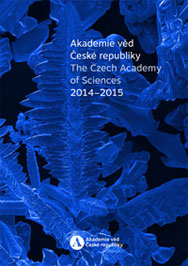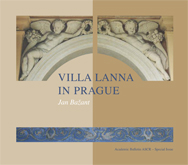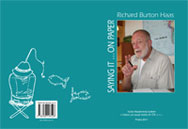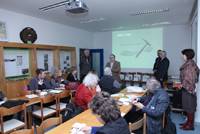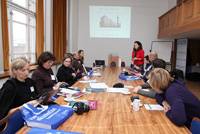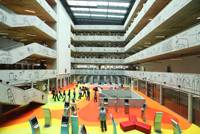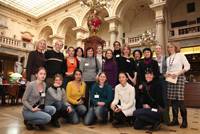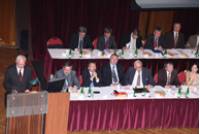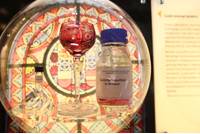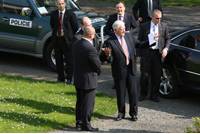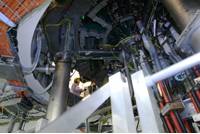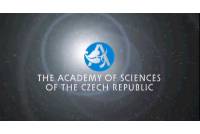
Academic bulletin 03/2008
RESUMÉ
TOPIC OF THE MONTH
Josef Hlávka's Jubilee Year
On March 11th, 2008 one hundred years will have passed since the death of Josef Hlavka, one of
the most successful entrepreneurs of the 19th century in former Austro-Hungarian Empire. He was a prominent architect and the most distinguished patron of Czech science and the arts and founder and first president of Czech Academy of Science and the Arts, the predecessor of today's Academy of Sciences of the Czech Republic. The 100th anniversary of the death of Josef Hlávka has been cited by UNESCO as a World Cultural Anniversary.
"8" ANNIVERSARY IN CZECHOSLOVAK HISTORY
From March 1848 through July 1849, the Habsburg Austrian Empire was threatened by revolutionary movements. Much of the revolutionary activity was of a nationalist character: the empire, ruled from Vienna, included Austrian Germans, Hungarians, Slovenes, Poles, Czechs, Slovaks, Ruthenians, Romanians, Serbs, Italians, and Croats, all of whom attempted in the course of the revolution to either achieve autonomy, independence, or even hegemonz over other nationalities.
SCIENCE AND RESEARCH
From research to commercial partnership
The Second Argentine – Czech Biennale Workshop e-Golems took place in Buenos Aires on September 24–26, 2007. It was organized by the Czech and Argentine Ministries of Culture and of Foreign Affairs and the Secretariat for Science, Technology and Productive Innovation of the Argentine Republic, with support from the Czech Embassy in Argentine and the Argentine Embassy in the Czech Republic. Its general subject was Society of Information and Communication – Emerging Technologies and their Applications in Society and the Arts. The aim of this event was to discuss this issue in detail such topics as, artificial intelligence, image processing, web-technologies, nano-technologies for life sciences, eco-technologies and so forth.
More information on this project can be found in the articles and in the interview in this issue with the Ambassador of the Argentine Republic in the Czech Republic, Ambassador Juan Eduardo Fleming.
International Year of Planet Earth
The International Year of Planet Earth 2008 provides an unparalleled opportunity to publicize and celebrate the contributions made by Earth Sciences and Earth scientists to our society on a global scale. On this occasion The Council of the Popularization of Science organized in the building of Academy of Science in February a conference where experts of geological sciences emphasized the important progress in understanding the Earth processes over the past decades. Society should apply this knowledge for achieving a healthier, safer and more prosperous world.
SCIENTIFIC SOCIETIES
Czech Society for Entomology
This scientific society has become in the last 104 years one of the largest and most active society in the Czech Republic. It now consists of 830 members who work in five regional branches and in eight scientific divisions.
FROM BRUSSELS
Marie Curie Industry-Academia Partnership and Pathways (IAPP)
This action seeks to open and foster dynamic pathways between public research organizations and private commercial enterprises. It will be implemented through targeted and flexible support for human resource interaction within co-operative programs between at least two organizations, one from each sector (private and public) and from at least two different Member States or Associated Countries.
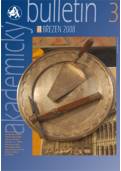

 Česky
Česky


